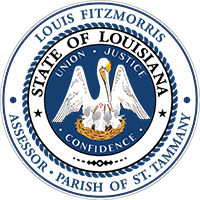07 Jul What is the role of taxing authorities?
Taxing authorities decide the amount of the property tax that is owed each year, including whether the overall property tax rises, falls, or stays the same. Subject to state and local limitations, the taxing authority can determine property taxes either by adjusting the total dollars requested or by adjusting (or not adjusting) the tax rate. The amounts set by the taxing authority in combination with your assessed value determine how much you pay in taxes.
For example, suppose taxing authorities decide to raise $1 million in property taxes and the assessor estimates the total assessed value of all taxable property in your community at $100 million.
Then the property tax rate would be calculated by dividing the amount of tax to be raised by the total assessed value:
$1 million/$100 million = 1 percent.
If your home’s assessed value is $100,000, your property tax bill will be:
1 percent x $100,000 = $1,000.
For another example, suppose the total assessed value of your community doubles from $100 million to $200 million and the amount to be raised stays the same. The tax rate will be:
$1 million/$200 million = 0.5 percent.
Your taxes, even though your home has doubled in value, will be the same:
0.5 percent x $200,000 = $1,000.
Sometimes, property owners are lucky enough to experience growth in the value of their properties while others remain the same or even fall. In these instances, property owners may experience higher taxes even if all other factors stay the same. For example, suppose your home doubles in value from $100,000 to $200,000 but the amount requested by the taxing authority remains at the same at $1 million and the overall assessed value of your community remains the same at $100 million. Then the tax rate will be:
$1 million/$100 million = 1 percent.
However, your taxes will increase from:
1 percent x $100,000 = $1,000
To
1 percent x $200,000 = $2,000.
Property taxes can also increase when your community’s assessed value increases and the taxing authority chooses to keep the tax rate the same.
For example, if the taxing authority decides to keep the tax rate at 1 percent even though it could have raised the same amount of overall taxes at 0.5 percent, then your taxes will be:
1 percent x $200,000 = $2,000.
The taxing authorities are demanding more money, even though they have not changed the rate.

